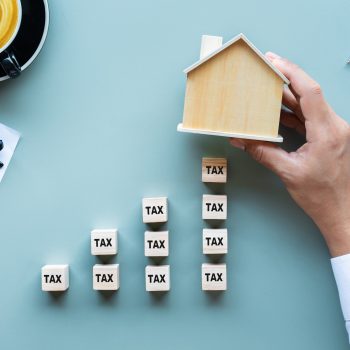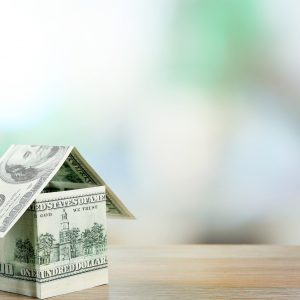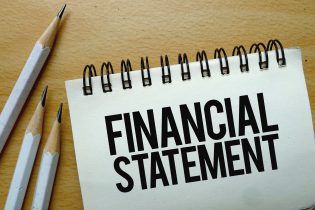Mansion Taxes for NYC Apartments: Explained

Mansion taxes for NYC apartments can be one of the most significant expenses associated with closing on your new development. But does this tax even apply to your new home? And how much should you set aside in your budget for tax and other closing costs? On this page, we will try to answer these question and more so that you can better understand your options for buying a new apartment.
Table of Contents
How Much is Mansion Tax in NYC?

Calculating mansion tax in NYC is more complicated than it may seem at first glance, since the tax rate varies depending on your home’s price bracket.
New York State 1% Mansion Tax
According to the New York State Department of Taxation and Finance, there is a flat 1% tax on all homes in New York state that cost over $1 million. Under this 1989 tax law, if your home is $1.2 million, the mansion tax would be $12,000. Seems straightforward, right? Well, it is only that simple if you are buying a home outside of New York City.
New York City 1% to 3.9% Mansion Tax
Unfortunately, things get a bit more complicated–and expensive–for NYC residents. As of 2019, there is now a supplemental tax in addition to the 1% mansion tax that only applies to real properties in the city.
For NYC homes worth $2 million or more, this supplemental tax charges an additional percentage based on the cost of the home. A progressive tax, this rate ranges from the base 1% mansion tax for homes worth $1,000,000 to $1,999,999, to 3.9% for homes worth $25 million and up. The more expensive your new development, the higher your rate of supplemental taxation.
To get an idea of how the New York City supplemental mansion tax applies to your future home, check the chart below.
- 1.00% –$1,000,000 to $1,999,999
- 1.25% –$2,000,000 to $2,999,999
- 1.50% –$3,000,000 to $4,999,999
- 2.25% –$5,000,000 to $9,999,999
- 3.25% –$10,000,000 to $14,999,999
- 3.50% –$15,000,000 to $19,999,999
- 3.75% –$20,000,000 to $24,999,999
- 3.90% –$25,000,000 or greater
Do You Have to Pay the NYC Mansion Tax?

If your new home cost less than $1 million, then you do not need to worry about the NYC mansion tax altogether. Unfortunately, New York real estate can be expensive. Many new development properties fall under this “mansion” categorization. It is not all bad news, however; there may still be ways for you to reduce the burden of you closing costs with the help of a New Dev Rev real estate expert.
Does the Seller Ever Pay the Mansion Tax?

Usually the seller, or “grantor” of the home is responsible for paying the New York state real estate transfer tax and the NYC real property transfer tax (RPTT) , while the buyer, the “grantee” pays the mansion tax. The seller is also usually responsible for the broker’s fee and their own attorney’s fees.
Sellers typically will not pay the Mansion tax, but you can possibly negotiate your closing costs with them in order to reduce the taxes and fees that fall on you. For example, some new developments may try to pass the transfer taxes on to you in addition to the mansion tax, but you can negotiate for them to take on this expense and absorb the cost.
Is the NYC Mansion Tax Tax Deductible?
The NYC mansion tax is not deductible the way property taxes are. There are no tax breaks for mansion taxes in New York.
When Do You Have to Pay the Mansion Tax?
The mansion tax, and other closing costs, have to be paid within 15 days of closing on your new development. If for some reason you cannot pay the closing costs during this time period, then the seller has to pay it.
Can You Lower the Cost of the Mansion Tax?
There are not many cases in which you can get an exemption or reduction to the mansion tax if your new home is worth more than $1 million dollars. You also cannot typically lower the rate of taxation. However, you can potentially negotiate with the seller to reduce the fees and other closing costs that come with purchasing your new development.
Other Closing Costs for New Developments
The mansion tax is not the only closing cost to keep in mind when searching for a new development to call home. There are a host of other fees that can add up, so it is best to be aware of them beforehand so they will not take you by surprise.
Bank Costs

Bank costs are things like the bank fees and mortgage taxes you have to pay in order to finance your purchase. These costs are often divided between the buyer and seller. Some bank-related closing costs include things like:
- Mortgage Recording Tax (MRT) – a fee for registering your mortgage with the state. Between 1.8% and 1.925% depending on the amount of your mortgage. This tax does not apply to co-op purchases in NYC.
- Bank Fees – these fees will largely depend on your particular bank and how you go about financing your home purchase.
Title Costs
These closing costs are associated with the selling and purchasing of a “title.” A title is a legal way of referring to your right of ownership over a property, as well as the deed that proves said ownership. These costs are usually divided between the seller and the buyer. Title-related closing costs include things like:
- NY State 1% Mansion Tax – a 1% tax on homes worth $1 million dollars or more in New York State.
- NYC Supplemental Mansion Tax – a progressive tax on homes worth $2 million dollars or more in New York city. This tax is added onto the base 1% tax rate, and comes out to between 1% and 3.9% of the purchase price.
- NY State Real Estate Transfer Tax – a base tax on all transfers of real property in New York State. Calculated at two dollars for every $500 dollars, this tax is commonly paid by the seller.
- NYC Real Property Transfer Tax (RPTT) – a 1.425% tax on real property transfers in New York City worth over $500,000 dollars. Usually paid by the seller.
- Title Insurance – insurance that protects the buyer and seller if fault is found in the property. You can find more information about title insurance rates on the Title Insurance Rate Association’s (TIRSA) website.
- How to Budget for the NYC Mansion Tax
Try to budget in a cushion for closing costs when you begin searching for your new home. New York City houses, condos, and co-ops can be pricey even before you take these fees into consideration. At first, it can be tempting to pretend these costs do not exist–and in so doing, to pretend that your budget is higher than it really should be. But if you factor closing costs into your budget from the beginning, you will have a smoother, less stressful home buying process.
Make a Spreadsheet

With so many moving pieces, it is a good idea to make a spreadsheet or some other record of all of the expenses you may encounter in your home search. Include the closing fees listed here, as well as any other fees you expect to incur. Then, use this data to adjust your budget accordingly.
Look into Assistance Programs
There are several home buying assistance programs that can help you afford your new development. The HomeFirst Down Payment Assistance Program, for example, helps first time homebuyers in NYC of a certain income bracket finance their purchase. There are also several different assistance programs available through the State of New York Mortgage Agency (SONYMA). Research these state programs, as well as offers through your bank, to see if any of them can apply to you and your family.
Reduce Costs Where You Can
You can also cut down on your expenses by obtaining an appraisal waiver. Home appraisals in NYC can cost upwards of $1000, so if you do not feel the need for an appraisal, you will save some money by avoiding it. Low interest mortgage rates can also lower the financial pressures of buying your new home.
While none of these cost saving measures will reduce your tax burden, they can give you more wiggle room in your budget and help you afford the new development of your dreams.
Contact New Dev Rev to Learn About NYC Mansion Taxes and Your New Development
At NewDev Rev, we know that the business of buying a home can be confusing. Add New York state taxes into the equation, and things get even more complicated. Avoid the headache, and have a New Dev Rev real estate expert walk you through the intricacies of NYC’s mansion taxes and other costs associated with purchasing your new development.
- Categories:




